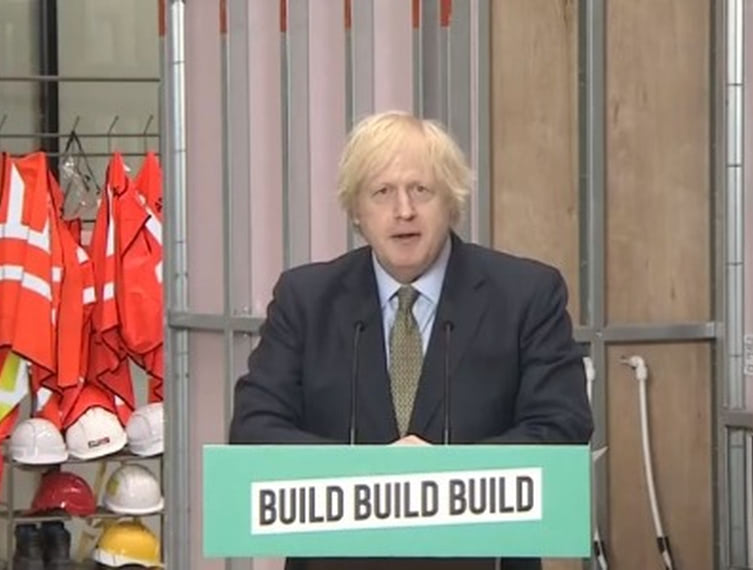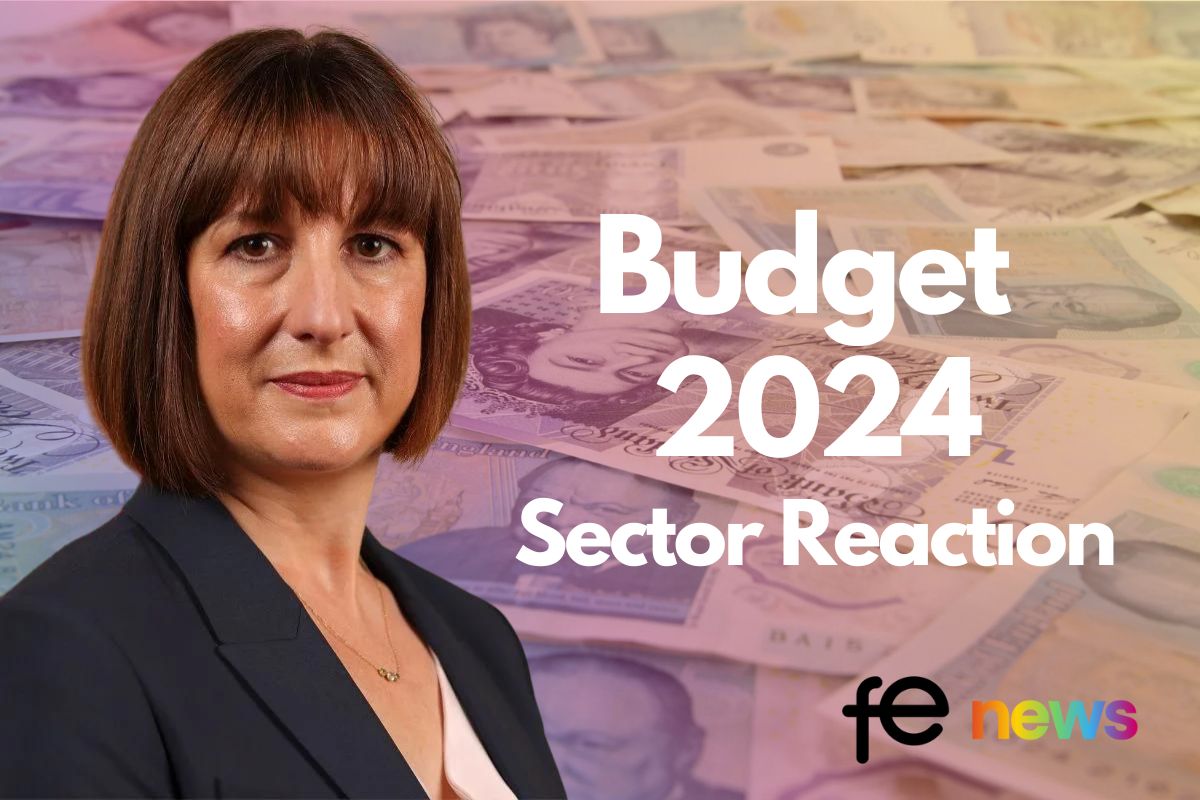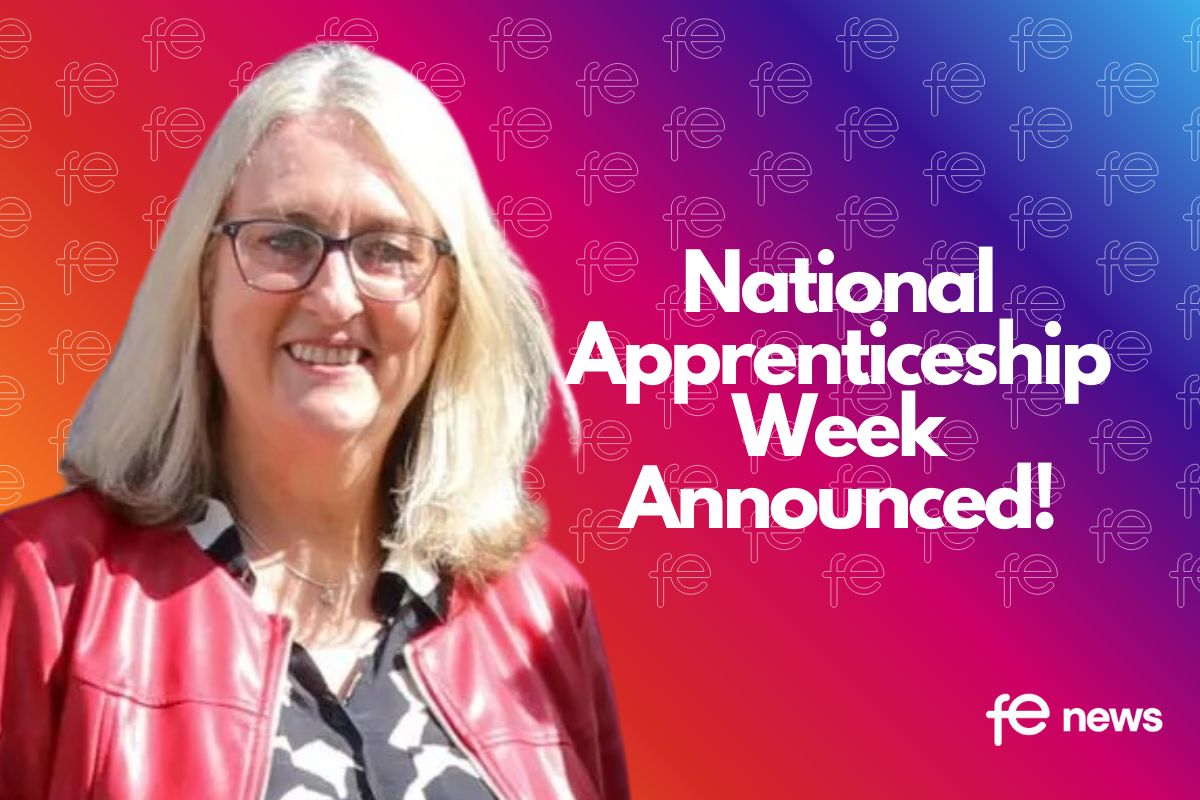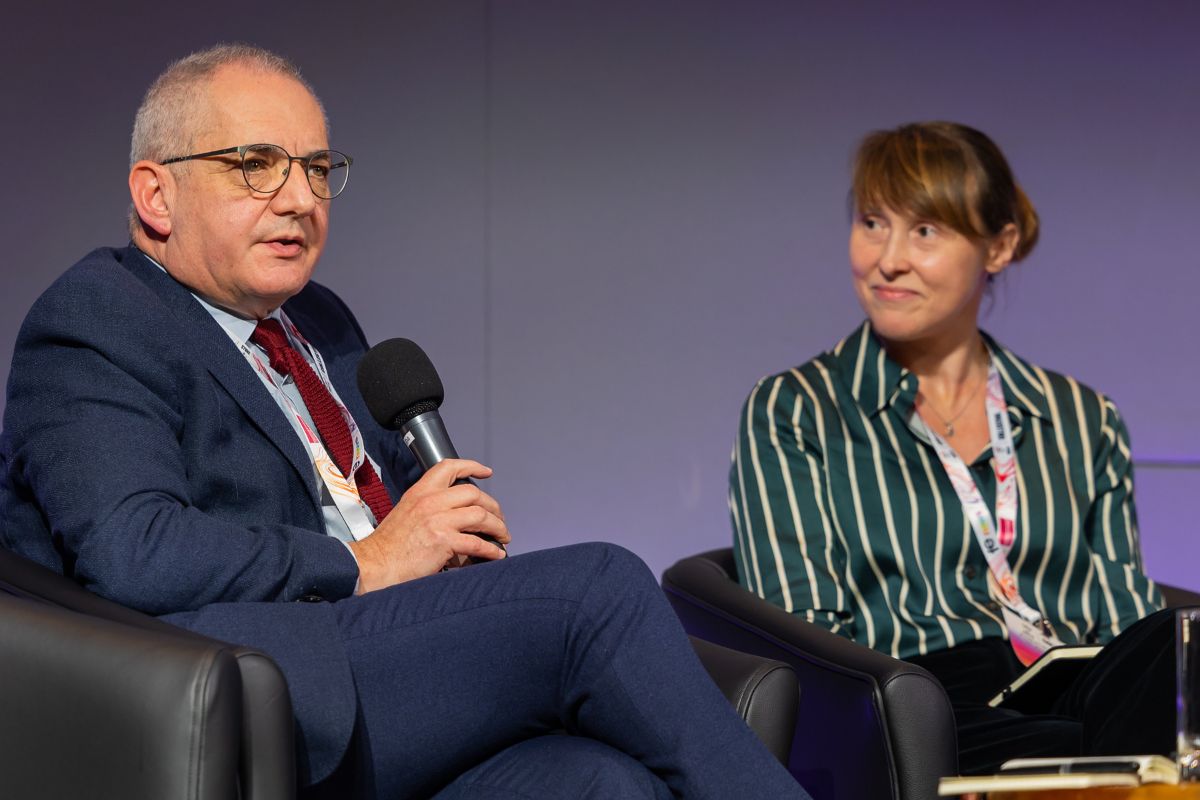‘Build build build’: Prime Minister announces New Deal for Britain and Opportunity Guarantee

Today (30 Jun) the Prime Minister @BorisJohnson announced a “New Deal” which puts jobs and infrastructure at the centre of the government’s economic growth strategy.
Interestingly he delivered his speech from Dudley College. The Prime Minister’s lectern had been updated from the Coronavirus daily updates to a Build, Build, Build branded lectern.
In his questions with the media after his speech, he said the speech was a ‘programme for jobs, jobs, jobs’. Mr Johnson mentioned an ‘opportunity guarantee‘ on several occasions, as well as increasing the UK’s productivity and the mention of ‘Project Speed’ to “sythe red tape and get it done!”.
The Levelling up promises were also high on the Prime Minister’s agenda of the day:
- Prime Minister promises a “New Deal” which delivers jobs, skills and infrastructure for Britain
- Speech set out first step in government plans to “build back better” in the wake of coronavirus, for the benefit of every corner of the country
- Government invests £5bn to accelerate infrastructure projects, fuelling jobs and economic recovery
Prime Minister Boris Johnson announced a “New Deal” which puts jobs and infrastructure at the centre of the government’s economic growth strategy.
In a speech at Dudley College in the West Midlands, the Prime Minister underlined his commitment to #BuildBuildBuild in order to upgrade Britain’s infrastructure and skills to fuel economic recovery across the UK.
So what is the FE Sector Response to the speech?
The Department for Education has confirmed the following:
- The “guarantee” involves several Departments, and the detail is still being finalised. We expect the Chancellor to make a more detailed announcement shortly.
- The basic premise is as the PM said a few weeks ago – that we recognise the substantial risk that some young people who would usually enter the labour market this year will find themselves NEET/unemployed.
- This is generally rarely a temporary thing. For example, we know that when 18-24 year-olds are NEET for 3 months, three-quarters of them will stay NEET for at least a year.
- There are a range of further and higher education opportunities open to young people leaving education this summer, but we also we want to work with employers to ensure that young people have access to an offer of work-based training, work experience, and/or training programmes.
 Tom Bewick, Chief Executive of the Federation of Awarding Bodies (FAB) comments:
Tom Bewick, Chief Executive of the Federation of Awarding Bodies (FAB) comments:
“The Federation really welcomes the Prime Minister’s commitment to an Opportunity Guarantee. There is no one single magic bullet that can prepare the country and the economy for a post-Covid world. However, we can start now to build more resilience in our society. Consumer-led education, skills and employment must be at the bedrock of that response. In short, we need: better skills, better jobs and better livelihoods.
“Crucially, we need a response from government that recognises that the world has moved on significantly from the 1980s. Make-work schemes devised in Whitehall and expanding the supply of educational places will not in themselves prepare the country for the challenges of the fourth industrial revolution. FAB’s members can help devise the knowledge, skills and behaviours that meets the needs of employers and individuals. We act in an agile and responsive way because we are independent of government. It’s why we look forward to playing our part in the skills ecosystem to making the Opportunity Guarantee a reality.”
 Mark Dawe, Chief Executive of the Association of Employment and Learning Providers (AELP) said:
Mark Dawe, Chief Executive of the Association of Employment and Learning Providers (AELP) said:
“The fact that the Prime Minister sees work placements as a key part of a new opportunity guarantee for young people is an important step forward and we recently submitted at the government’s request what has been holding back the highly effective traineeship programme from taking off. We believe incentives for SME employers will be needed.
“On apprenticeships, we don’t believe that the floated £3k employer incentive is going to cut it. To meet a 50% wage subsidy, the subsidy for a young apprentice in their first year should be around £4k and up to £7.5k in second year depending on their age.”
![]() Joe Dromey, deputy director of research and development at Learning and Work Institute:
Joe Dromey, deputy director of research and development at Learning and Work Institute:
“We know that young people face a particularly high risk from unemployment as a result of the Coronavirus crisis, and that youth unemployment can have a lasting scarring effect. Learning and Work Institute has been leading a number of organisations in calling for an Opportunity Guarantee to prevent a catastrophic rise in youth unemployment, and the emergence of a pandemic generation.
“But with hundreds of thousands of 18 year olds leaving education this summer, this needs to be delivered at scale and at pace, and it needs to go beyond a focus on apprenticeships and work placements. Building on the successful Future Jobs Fund, we’ve called for a job guarantee scheme focused on young people. We also need to look at support for young people to stay in education for an additional year, to reduce the number of young people entering the labour market at this difficult time.
“The government has taken unprecedented measures to protect jobs during the crisis. We need the same level of ambition to create opportunities for young people, and to avoid the scourge of youth unemployment.”
 Helen Barnard, Acting Director of the Joseph Rowntree Foundation, said:
Helen Barnard, Acting Director of the Joseph Rowntree Foundation, said:
“The Prime Minister’s renewed commitment to levelling up today is good news. Plans to improve transport are welcome, and the Prime Minister is right to recognise the need to build many more homes. But this cannot come at the expense of affordable and social housing – cutting funding for the homes that those locked in poverty most need is a disappointing start. With successive governments promising and failing to deliver, the Prime Minister must do more than talk the talk; he must now walk the walk.
“The government’s vision to ‘build back better’ has to extend beyond bricks and mortar or roads and railway lines. We need to see investment in skills and training too, so that those trapped on low pay or living in parts of the country with weaker local economies can access good jobs. And as the recession starts to bite, a ‘new deal’ must focus on more than just job creation. With unemployment set to rise, the government should now step up support through the benefits system for those who have already lost their jobs or will do so as the furlough scheme unwinds.
“The coronavirus crisis has shown the nation’s willingness to look out for each other. As the task of rebuilding our economy begins, government must ensure that no-one is left behind. We look forward to the government setting out its plans in more detail in the coming weeks.”
The Prime Minister said:
It sounds positively Rooseveltian. It sounds like a New Deal. All I can say is that if so, then that is how it is meant to sound and to be, because that is what the times demand. A government that is powerful and determined and that puts its arms around people at a time of crisis….
…this is a government that is wholly committed not just to defeating coronavirus but to using this crisis finally to tackle this country’s great unresolved challenges of the last three decades.
To build the homes, to fix the NHS, to tackle the skills crisis, to mend the indefensible gap in opportunity and productivity and connectivity between the regions of the UK. To unite and level up.
To that end we will build build build. Build back better, build back greener, build back faster and to do that at the pace that this moment requires.
The Prime Minister announced £5bn of capital investment projects, supporting jobs and the economic recovery, including:
- £1.5bn this year for hospital maintenance, eradicating mental health dormitories, enabling hospital building, and improving A&E capacity. This will improve patient care, make sure NHS hospitals can deliver world-leading services and reduce the risk of coronavirus infections.
- £100m this year for 29 projects in our road network to get Britain moving, from bridge repairs in Sandwell to boosting the quality of the A15 in the Humber region. Plus £10m for development work to unblock the Manchester rail bottleneck, which will begin this year.
- Over £1bn to fund the first 50 projects of a new, ten-year school rebuilding programme, starting from 2020-21. These projects will be confirmed in the Autumn, and construction on the first sites will begin from September 2021.
- £560m and £200m for repairs and upgrades to schools and FE colleges respectively this year.
- £142m for digital upgrades and maintenance to around 100 courts this year, £83m for maintenance of prisons and youth offender facilities, and £60m for temporary prison places, creating thousands of new jobs.
- £900m for a range of ‘shovel ready’ local growth projects in England over the course of this year and next, as well as £96m to accelerate investment in town centres and high streets through the Towns Fund this year. This will provide all 101 towns selected for town deals with £500k-£1m to spend on projects such as improvements to parks, high streets, and transport.
The Prime Minister will talk about an “infrastructure revolution”: building infrastructure, building jobs and building healthcare through a bold programme of national renewal, uniting and levelling up the UK.
Mr Johnson said:
Too many parts of this country have felt left behind, neglected, unloved, as though someone had taken a strategic decision that their fate did not matter as much as the metropolis.
And so I want you to know that this government not only has a vision to change this country for the better, we have a mission to unite and level up – the mission on which we were elected last year.
WATCH LIVE: PM @BorisJohnson sets out the government’s ‘New Deal’, delivering jobs, skills and infrastructure for Britain.
Watch here for updates ⬇️ https://t.co/E9m1iQ12nc
— UK Prime Minister (@10DowningStreet) June 30, 2020
The Number 10 release around the speech really focussed on the change of building planning permissions, but an earlier release highlights: The Spring Budget 2020 set out an ambitious plan to invest in our future prosperity. Today’s announcement redoubles government’s efforts to get on with this now, in support of economic recovery and jobs right across the country.
To support the ambition to ‘build build build’, in the Autumn the government will also publish a National Infrastructure Strategy which will set a clear direction on core economic infrastructure, including energy networks, road and rail, flood defences and waste.
The Government also intends to bring forward funding to accelerate infrastructure projects in Scotland, Wales, and Northern Ireland – they will work with the devolved administrations to identify where they can get spades in the ground, build our communities, and create jobs faster for citizens across the United Kingdom. They will carry out a review to look at how best to improve road, rail, air and sea links between our four nations to create a more connected kingdom.
To protect the UK’s natural infrastructure, the Prime Minister has recommitted to reforest Britain by planting over 75,000 acres of trees every year by 2025. He is also set to pledge £40m to boost local conservation projects and create 3000 jobs, including new Conservation Rangers, and safeguard a further 2000 – training young people and others in the community to protect their local environments. This will go a long way to safeguard the UK’s natural carbon stores and wildlife habitats – our meadows, rivers, and local green spaces – which are central to capturing and removing CO2 from the atmosphere, protecting precious biodiversity, and connecting people with nature.
Recognising the crisis has driven job josses across the country, and many people are worried about their jobs and incomes, the Prime Minister highlighted an action to support jobs and skills in his speech. This government is committed to building an economy that works for working people across the country. While in the long-term the government must set a path to balance the books, the Prime Minister is clear that we will not do so at the expense of investing now in the productive potential of the economy, or at the expense of the resilience of the UK’s public services.
The Prime Minister finished by saying:
If we deliver this plan together, then we will together build our way back to health.
We will not just bounce back, we will bounce forward – stronger and better and more united than ever before.
The Prime Minister was not drawn on further announcements and we understand that the Chancellor will provide an update on the economy next week.











Responses